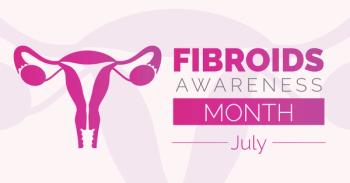
Vitamin D and green tea extract for treatment of uterine fibroids
Vitamin D and green tea extract resulted in a significant reduction in the mean size of uterine fibroids among women of later reproductive age, according to a recent study.
The concomitant administration of vitamin D and green tea extract resulted in a significant reduction in the mean size of uterine fibroids among women of later reproductive age, according to a pilot study in the journal Gynecological Endocrinology.1
The positive effect of the combined treatment was also more pronounced in women with predominant intramural (IM) fibroids than those with subserosal (SS) fibroids greater than or equal to 3 cm.
“Fibroids are a common gynecological disease, with a cumulative incidence of approximately 70% in White women and 80% in Black women by age 50,” said principal investigator Giovanni Grandi, MD, an assistant professor of ob-gyn at the University of Modena and Reggio Emilia in Modena, Italy
The beneficial effects of vitamin D and epigallocatechin gallate (EGCG), a polyphenol of green tea, on the growth of uterine fibroids were previously described in vitro and in vivo, according to Grandi, “and recent studies indicate that hypovitaminosis D plays a role in fibroid development,” he said. “Moreover EGCG has some chemopreventive and anticancer potentials that have demonstrated an antiproliferative effect on fibroid cells.”
The current prospective study, which was conducted at the Azienda Ospedaliero-Universitaria Policlinico of Modena from January 2020 to February 2021, recruited 16 premenopausal women, all over the age of 40.
The women either had IM fibroids or SS fibroids ≥3 cm, or several fibroids of various sizes with a total diameter between ≥3 cm and <10 cm.
In addition, none of the women had further accompanying organic causes of abnormal uterine bleeding or were using other concomitant hormonal treatments.
Participants were treated with EGCG 300 mg, vitamin B6 10 mg, and vitamin D 50 µg/day for 90 days, for which they completed a daily diary on bleeding and pelvic pain.
At the end of the 90 days, there was a significant reduction in the mean size of the fibroids, with a 17.8% overall mean decrease (P = 0.03) and a 37.3% mean decrease in individual fibroids (P = 0.015).
This effect was more evident in women with predominant IM fibroids (P = 0.016) in comparison to SS fibroids.
However, no significant changes were observed for uterine and ovarian volume and endometrial thickness during treatment.
On the other hand, there was a significant reduction in menstrual flow length of 0.9 days (P = 0.04), with no modification in cycle length, menstrual flow intensity, and menstrual pain intensity.
“It was truly surprising to demonstrate after 3 months of treatment in women during late reproductive life, a clear reduction of about one third the volume of fibroids,” Grandi told Contemporary OB/GYN®. “It was also unexpected that women with predominant intramural fibers benefited more from treatment than those with SS fibroids.”
Grandi noted that patient satisfaction with treatment was largely very high, with no adverse effects reported.
“Today, only hormonal treatments are validated and available for fibroid management worldwide,” Grandi said. “The combination treatment of vitamin D and green tea extracts could be a new therapeutic nonhormonal option for women of late reproductive life for which hormonal manipulation is not foreseen.”
The same beneficial effect needs to be determined in larger randomized trials, especially in younger women under the age of 35 with uterine fibroids, according to Grandi.
Disclosure:
Grandi reports no relevant financial disclosures.
Reference:
1. Grandi G, Del Savio MC, Melotti C, et al. Vitamin D and green tea extracts for the treatment of uterine fibroids in late reproductive life: a pilot, prospective, daily-diary based study. Gynecol Endocrinol. Published online October 16, 2021. doi:10.1080/09513590.2021.1991909
Newsletter
Get the latest clinical updates, case studies, and expert commentary in obstetric and gynecologic care. Sign up now to stay informed.









